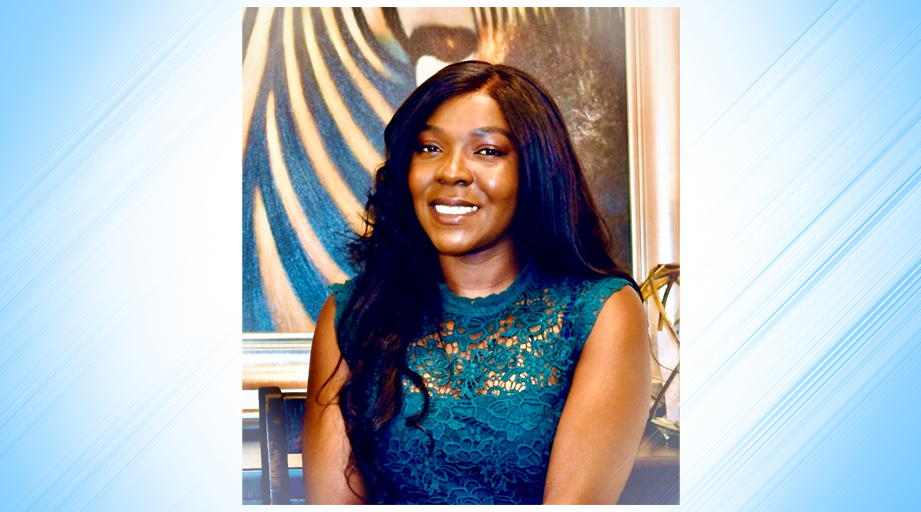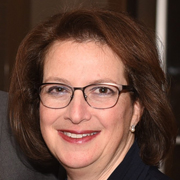
Yewande Dayo, PharmD, BCIDP, grew up in Nigeria, where pharmacy was always on her radar. A close family friend was a pharmacist and is now the dean of a pharmacy school in the country. An uncle and one of her mother's cousins were also pharmacists. Then, after her family moved to the U.S. in 2006 so she and her siblings could attend colleges here, Dayo worked at Walgreens as a pharmacy technician while attending the University of Maryland, Baltimore County.
Strong affinity for infectious disease management
She enjoyed interacting with patients and pharmacists, and learning about different medications, how they’re dosed, and how they work. “It made sense for me to continue fulfilling that path.” Today, she is an infectious diseases pharmacist at Ochsner Health in New Orleans with a passion for antimicrobial stewardship, teaching, and promoting diversity, equity, and inclusion (DEI) efforts.
Dayo, an ASHP member, said she originally thought she would return to a retail setting after completing pharmacy school. But in her third year, she took coursework in infectious diseases that sparked her interest.
“Those were the first clinical courses where I just ‘got it,’” Dayo said. “It made sense in class. I didn’t have to question or struggle to understand the concepts. I had a really strong affinity for the concepts behind infectious disease management and enjoyed learning about the drugs and how they work on different pathogens.”
From there, Dayo pursued residency training at the Veterans Affairs Medical Center in Washington, D.C., which was flexible enough to allow her to pursue multiple months of rotations in HIV, hepatitis C, and antimicrobial stewardship. “The more I did it, the more I just enjoyed it,” she said. Dayo spent her PGY2 year specializing in infectious diseases at the Michael E. DeBakey Veterans Affairs Medical Center in Houston.
A trial by fire
Her first job, as the only infectious diseases clinical pharmacist at a community teaching hospital that was part of JPS Health Network in Dallas, started in the fall of 2019. When the COVID-19 pandemic emerged just a few months later, the position soon became a trial by fire.
“It was very difficult for me,” Dayo admitted. While still learning the institution’s policies and procedures, COVID happened. Her core duties were working with the ID consult service and promoting antimicrobial stewardship.
On the plus side, she said, “I grew so quickly as a clinical pharmacist and an infectious diseases pharmacist. My thought processes for navigating studies and everything got clearer throughout that process.” On the flip side, she, like many other pharmacists and healthcare workers, experienced some burnout.
Shooting for the stars
In January 2021, Dayo moved to Ochsner Health to become a system antimicrobial stewardship clinical pharmacist. She spends her days working on stewardship programming; reporting and analyzing data; working to mitigate shortages of antimicrobial agents; and supervising residents on rotation. Dayo also serves as an ID liaison for smaller hospitals within the health system that don’t have ID physicians or pharmacists on staff. In that role, she reviews blood culture results, helps guide therapy, or pulls in ID physicians as needed to consult on patients. Her favorite part of the job? Implementing systemwide stewardship programs, serving as a guide and mentor for work teams, and seeing projects through to completion, she noted.
“I get most excited when I’m starting up a project, in the beginning stages where anything’s possible and I can just shoot for the stars,” she said. “I’m trying to implement protocols or initiatives across 40-something hospitals with very diverse patient setups and very diverse resources. The challenge there is trying to figure out a way to implement a protocol where it can apply to everyone, and then work with the individual sites to customize it to their resources. It’s super fun because it forces you to think a little bit outside the box.”
One recent project established a pharmacist-run triage process for patients diagnosed with COVID-19 to help physicians who found it challenging to keep up with rapidly evolving therapies for the virus. Physicians could send a generic treatment order electronically to a work queue managed by pharmacists, who would review patient information and follow guidelines they implemented in-house to order appropriate therapies, or set up appointments for patients to come in for monoclonal antibody infusions, started by nurses but supervised by pharmacists. Later, they adjusted the program to cover appropriate prescribing of Paxlovid.
Dayo said she also enjoys helping patients and residents understand the importance of antimicrobial stewardship, and seeing the “light bulb” moment when trainees really get it. “Sometimes when you see patients show up with very resistant, difficult-to-treat infection, there’s almost a predictable pattern. If I go through their history, they have been overly exposed to antimicrobials throughout their lifetime.”
Promoting DEI
Promoting diversity, equity, and inclusion (DEI) is another of Dayo’s interests, which she says stems from having a better understanding of the world around us. “Everyone has different experiences, challenges, obstacles, successes, joys that inform who they are as a person but also help inform their outcomes and the things that are possible for them,” she said. When pharmacists have similar life experiences to their patients, they may better understand the patient’s culture or how they phrase things. “It serves everyone — patients, clinicians, and society in general — to have a better understanding of each other and our struggles, the reasons why certain things have historically been the way that they are, and seeing the ways that we can help make things better.”
She credits her family for helping uphold her dreams. “Having a very supportive family through every process has been super impactful in me being able to get to where I am,” she said.








